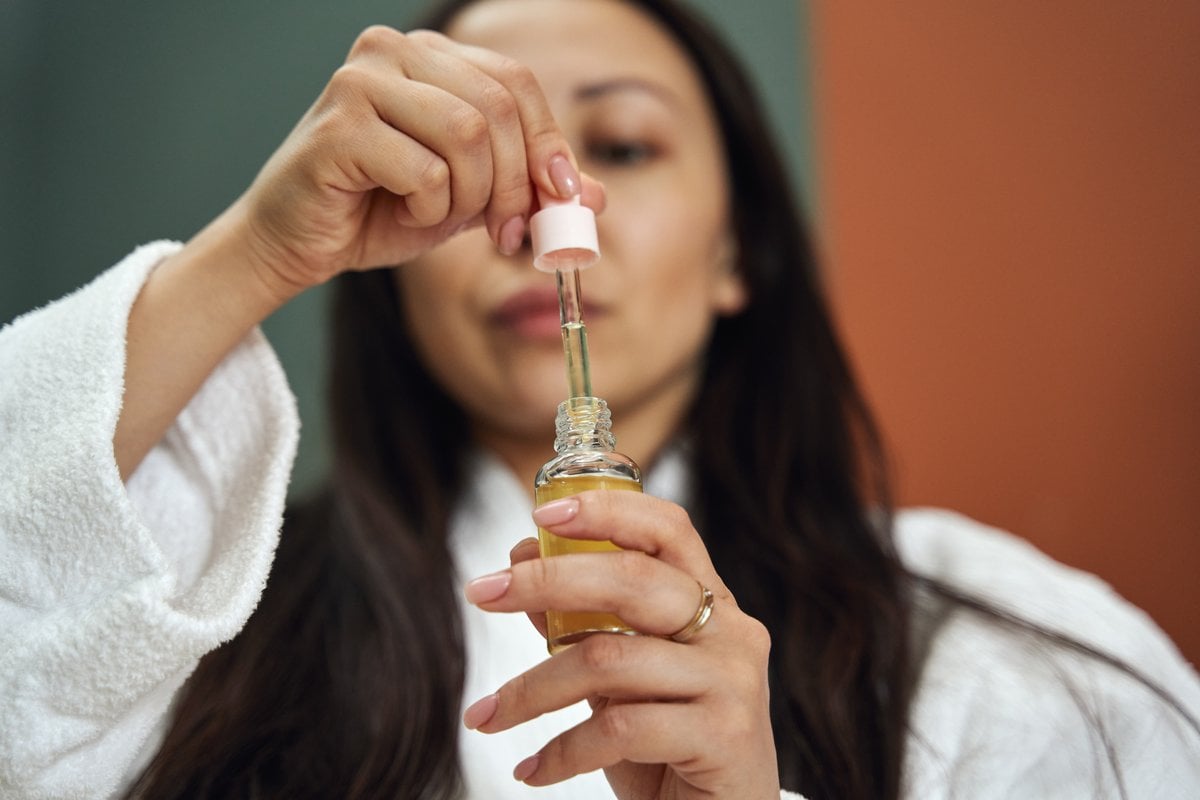
Retinol is a fan favourite in the skincare realm. So many of us use it too... but should we be? And do we actually know what we're putting on our face?
We asked science and skincare experts about all things retinol, including which specific groups of people should avoid products with this vitamin A derivative in them.
Wait rewind... what is retinol again?
Professor Murray Cairns is a Professor at the University of Newcastle, and the head of Hunter Medical Research Institute's Precision Medicine research program. He has a new paper published in relation to retinol and its relationship to human health.
"Retinol is a form of vitamin A, and this is an incredibly important vitamin that comes in several forms," he explains to Mamamia.
"It goes deep into your cells and can have a big impact on the development of humans, whether it's the eyes, bones, brain health or immune system. And then one additional area of impact obviously is the skin."
Retinoids have been used in dermatology since the 1940s, so it's nothing new when it comes to skincare. But collectively as consumers, our fascination with this ingredient has drastically risen.
Watch: tried and tested, the 10-pump foundation hack. Post continues below.